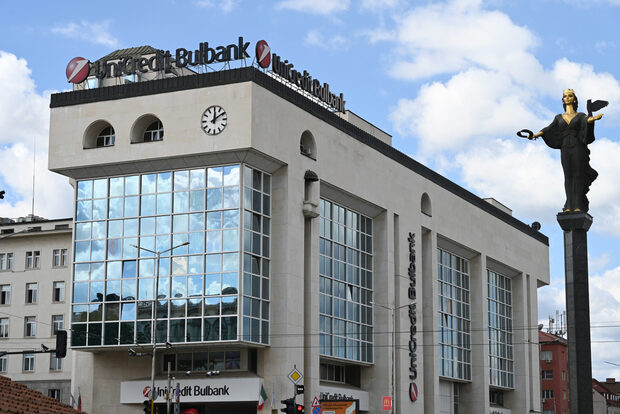- Bulgaria will have to (once more) choose between a better economic future and maintaining the status quo
Until very recently, Bulgaria's path to the Exchange Rate Mechanism (ERM II), the training grounds before entry into the Eurozone and the EU's Banking Union, seemed assured. The technical requirements were met, the final obstacle being the capitalization of the two problematic lenders - First Investment Bank (Fibank) and Investbank, which were found to have significant capital shortfalls following last year's comprehensive assessment conducted by the ECB.
At the end of January, however, Bulgaria's bid to join the euro area suddenly steered away from the quiet channels of technical preparation and hit a wall following a U-turn by Prime Minister Boyko Borissov. The stumbling blocks were several little-publicized changes to the legal framework that technically "untied" the Bulgarian lev from the euro. They sparked speculation and unfounded fears about the stability of Bulgaria's currency board system, which has been an anchor for the local economy since the late 1990s. After several weeks of ever-increasing crescendo and feeble government reaction, Mr Borissov came out and said that "as long as there is no absolute consensus, confidence in the euro area, we will not force our entry".
The prime minister's statement was, to put it mildly, surprising, considering it came at a time when negotiations and preparations for Bulgaria's entry into ERM II were in their final stage. Many observers took that to mean one of two things - either Bulgaria doesn't have enough external support to enter the Eurozone and is now trying to backpedal, or that there is no political will to finish the process.
The first theory seems less likely. There are strong signals from Brussels that Bulgaria has a very good chance of joining the Banking Union and the exchange rate mechanism, if not by April 30, the date originally set by the Minister of Finance Vladislav Goranov, then by mid-year. The Executive Vice-President of the European Commission, Valdis Dombrovskis, who is directly overseeing Bulgaria's accession to the euro area, told Capital newspaper that Sofia is following the initial schedule, the implementation of its commitments was "at an advanced stage" and there is no reason for delays.
Mr Borissov's backpedalling seems to follow his habit of quelling any tension arising on a potentially explosive topic, even if it contravenes common sense and Bulgaria's long-term interest. So far, this doesn't mean that Bulgaria is abandoning its plan to join ERM II - there is no such statement from the government. However, the prime minister's wavering encouraged eurosceptics to step up their campaign against the Eurozone and even start a petition for a referendum on joining the euro. Moreover, other EU capitals are wondering if Bulgaria, which had insisted on joining the euro, is still certain of its goals. Without determination, Sofia could lose support, because after joining ERM II a lot more reforms will have to be made to prepare Bulgaria's subsequent entry into the euro area. The other EU member states are wary of Bulgaria promising a lot and then backtracking as happened after EU accession in 2007.
A possible "freeze" of the government's efforts to adopt the euro could irk foreign investors, who will take this into account when exploring the country as a destination where future reforms are expected to improve the local business environment. At the end of last year, for example, rating agency Standard & Poor's upgraded Bulgaria's credit rating by one degree, taking into account the country's progress in preparations to join ERM II.
PR crisis
It all started with an amendment to the Law on the Bulgarian National Bank which stated that the lev's fixed exchange rate to the euro will be abolished following the country's entry into ERM II.
The change was necessary and requested by the ECB in order to demonstrate Bulgaria's central bank independence in dealing with the national currency. However, the amendment was submitted between two readings in the parliament of a completely different law and was not accompanied by any assurance that no one, in any form, was planning to change the current fixed exchange rate of 1.95583 levs to the euro. This opened the door for wild speculation.
Economic and political populists quickly seized their chance to gain ground on people's fears, which mostly go in two directions. Firstly, the exchange rate will be renegotiated upon entry in ERM II and people's lev savings will depreciate. Secondly, prices will increase significantly and the purchasing power will drop like a rock - a fear that has persisted despite numerous rebuttals using statistics from countries that have already accepted the euro.
Formal statements that this exchange rate will not change and Bulgaria will keep its currency board arrangement were countered by allegations of hypothetical backstage agreements and guaranteed depreciation of the lev because ERM II allows for fluctuation of the exchange rate of the candidate country's currency to the euro within a corridor of +/- 15%.
In short, both institutions driving the procedures for Bulgaria's membership in ERM II - the Ministry of Finance and the Bulgarian National Bank, became prisoners of their own strategy to keep it quiet. Any talk about scrapping the currency board and a potential depreciation raises very real fears, because only 23 years ago Bulgaria suffered severe hyperinflation that wiped out people's savings, and pushed many to consider turning their levs into euro or dollars "just in case". Turning these fears into panic can shake not only the political resolve to join the Eurozone but the actual currency board as well. In less than a week in the middle of February, more than one billion levs were exchanged and if the panic had continued, BNB would have had to decide to use some of its not so liquid currency reserves to meet the demand for euro.
The noise has shifted to the core of the matter - arguments for and against the euro area. The fiercest critics are among the devotees that have long ago taken a stand against Bulgaria adopting the euro. And the play with people's fears went up a notch -"What if the Eurozone ends up collapsing?" or "What if we become like Greece?" Spearheading the anti-euro campaign, Steve Hanke - professor at Johns Hopkins and senior fellow at Cato Institute, often wrongly promoted as the "father of the Bulgarian currency board", proclaimed that Bulgaria is left to the mercy of Frankfurt (where the ECB is based) and the Bulgarian lev could be devalued through secret agreements.
These "what if" arguments are valid and theoretically sound, albeit rebuttable in practice. If one is a true eurosceptic and believes in the imminent collapse of the euro area, then it makes sense to preserve the national currency. The problem with this logic is that Bulgaria already has a deep attachment to the European economy. In such a catastrophic event, the existence of the lev, whether fixed or floating, will not do anything to mitigate the fallout.
The issue of fiscal discipline is a natural consequence of the accumulated distrust of politicians along many lines. However, assuming that the primary objective of the government is to preserve a fertile corruption environment, they would be better off doing it outside of the tighter controls of the euro area and the single banking supervision.
In search of consensus
It's unclear what kind of policy the prime minister is seeking. Typically, politicians make big strategic steps like this with the clear awareness that not everyone in society will agree but that they're in the country's best interests long-term. In 1997, when the currency board was introduced in Bulgaria, there was no consensus, too, but after 23 years of operation, the rigid monetary mechanism has become an article of faith.
Even though polling results show that only 43% of Bulgarians support the euro, there is virtually unanimous support for euro adoption among the parliamentary parties. Only Volya, a fringe populist party has announced that it would propose a referendum on the euro, which would also include questions on whether illiterate people should be able to vote, whether there should be video surveillance when opening ballot boxes and whether waste imports should be allowed.
So far, the prime minister's statement has not been construed by relevant institutions as the cue to cease preparations for Bulgaria's euro accession. "The Bulgarian National Bank has no comment on the Prime Minister's statement. The work on fulfilling the tasks related to joining ERM II and the Banking Union continues in accordance with the established schedule," said central bank governor Dimitar Radev in response to questions from Capital.
The last hurdle before joining the ERM II is the requirement to recapitalize First Investment Bank (Fibank) and Investbank. Even if they fail to do that through private investors, the amount could easily be raised through budgetary or quasi-budgetary funds as a last resort.
Despite the turbulence, at least publicly Sofia is still en route to the Eurozone and there is no change in Brussels' support. A day after Borissov's comments, Mr Dombrovskis posted on Twitter a photo with finance minister Goranov. "Euro accession is open to any EU country working towards it; the European Commission supports this effort to get ready for a successful membership," the commissioner wrote.
Once more, the benefits of the euro
The classic benefits of the euro are clear - a better credit rating and cheaper loans, more investment and lower transaction costs. These effects, in addition to the reforms and legal amendments undertaken in the process, improve the business environment.But what Bulgaria would miss if it remains in its current position is just as important. Better banking supervision, for example. Bulgaria's most significant banking problems since 1990 have been caused by institutions with local ownership. The temptation of bankers to channel depositors' resources to their other endeavours is always present and the local regulator will always be under pressure from oligarchic interests. ECB supervision is not perfect, it doesn't fully eliminate the risks but it definitely reduces them. Another benefit is that staying in ERM II will involve more reform commitments and follow-up on entry into the mechanism. For example, legal amendments aimed at improving the governance of state-owned companies. Although such amendments are steps in the right direction themselves, they really depend on how they are implemented. The same applies to anti-money laundering, financial sector supervision and more.
Moreover, strategically, a deeper question concerns Bulgaria's vision for its future outside the Eurozone. Establishing close cooperation with the ECB, and subsequently joining the Eurozone, is a logical exit from the currency board that geopolitically binds Bulgaria to the core of the EU and gives the country a seat at the decision-making table. There are several alternatives to this and it is not clear what the benefits are. Maintaining the status quo leaves Bulgaria with no monetary policy and no access to ECB liquidity or bailouts. In the event of economic turbulence, this doesn't help the economy one iota. The other option - switching to some form of floating exchange rate, has not been suggested by anyone, not even the harshest critics of the euro. So - the ball is in Borissov's court once again.
Eva Elges, Managing Director of Cargill in Bulgaria: Market needs more talent
What was the biggest event in your sector in the last quarter and why?
The continued market expansion. More global companies have noticed the strong skills, experience, and potential of talent in Bulgaria. Like Cargill, other companies are seeing Bulgaria is a location where they can establish capabilities centеrs that are not just cost-effective but can also deliver a lot of value.
What do you expect in the next big development in the sector over the next quarter or further and why?
People development. With the industry's accelerated growth, our market needs to continue to meet growing demands for talent. And these needs combine higher education, specialized skills and languages with agile thinking, lean mindset and soft skills.
Eva Elges is the Managing Director of Cargill in Bulgaria and Cargill Business Services Sofia Center Lead. She also leads the biggest function the centre - Finance, which is supporting Cargill in the Europe, Middle East, Africa and Russia region.
Eva joined Cargill in 2018, bringing more than 20 years of experience in the accounting and reporting field, and a decade of experience working for global companies, including Interbrew, Bosch, and Bombardier.
Eva is half German, half Hungarian, and married to a Romanian. She and her family relocated to Bulgaria to join Cargill. One of Eva's favourite quotes is, "With passion, you can win everything."
- Bulgaria will have to (once more) choose between a better economic future and maintaining the status quo
Until very recently, Bulgaria's path to the Exchange Rate Mechanism (ERM II), the training grounds before entry into the Eurozone and the EU's Banking Union, seemed assured. The technical requirements were met, the final obstacle being the capitalization of the two problematic lenders - First Investment Bank (Fibank) and Investbank, which were found to have significant capital shortfalls following last year's comprehensive assessment conducted by the ECB.










